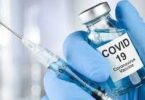One study finds that belief in conspiracy theories and their effect on individual behaviors increased between March and July 2020.
While many other countries have managed to control the spread of COVID-19, the death toll from the disease continues to rise in the United States.
The Annenberg Public Policy Center (APPC) at the University of Pennsylvania in Philadelphia has published a study examining how belief in conspiracy theories has led to many American citizens being unwilling to engage in activities that could reduce the spread of the disease.
Many people in the US continue to believe that the Centers for Disease Control and Prevention (CDC) was exaggerating the severity of COVID-19, that China created the virus, or that the pharmaceutical industry created it to sell more drugs.
The effect of conspiracy theories on public health
The study finds that belief in conspiracies is inversely proportional to the probability that a person wears a mask or gets vaccinated.
People who do not believe in conspiracy theories are 1.5 times more likely to wear a mask outside the home when in contact with other people.
The authors found that 62% of the conspiracy believers reported wearing a mask compared to 95% of other people. Political orientation also seemed to be a factor in people wearing a mask. The study indicated that liberals were more likely to wear a mask than conservatives.
In July, the study found that fewer people overall intended to get vaccinated.
In March, 37% of those who strongly believed in conspiracy theories wanted to get vaccinated; by July, that percentage had fallen to 22%.
Finally, in March, 81% of people who did not believe in conspiracy theories planned to get vaccinated, although that number had dropped to 76% in July.
The researchers found no significant association between political beliefs and the drop in the number of people who intended to get vaccinated.
The study concludes:
“Because belief in conspiracy theories related to COVID predicts resistance to both preventive behaviors and future vaccination against the virus, addressing conspiracy theories and vaccination misinformation will be critical to prevent further spread. of the virus in the US continuous messages from public health authorities in the mainstream media and, in particular, in the politically conservative media that have supported conspiracy theories related to COVID.







